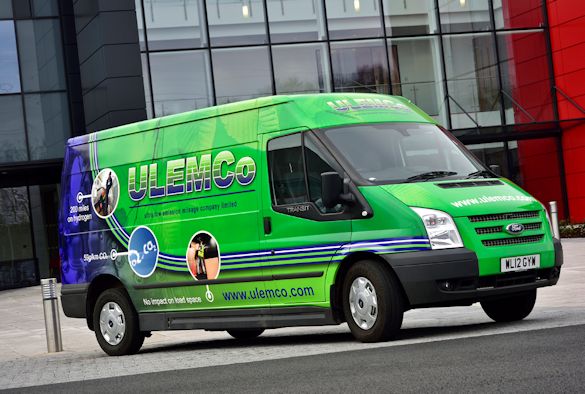
University of Liverpool Chemists are partnering with a Merseyside SME, ULEMCo, on a project to reduce carbon emissions and improve air quality emissions for vehicles in China.
The £2million collaborative project, supported by Innovate UK through the Newton Fund, will investigate the practical challenges of developing mass market hydrogen fuelled vehicles for China, in particular commercial vehicles. It will explore novel routes to ‘green’ hydrogen production, and relevant hydrogen storage approaches designed to meet the specific market challenges in China.
Led by ULMECo, the project also involves the WuhanNew Energy Institute (WNEI) of Huazhong University of Science and Technology (HUST) and Hubei Swan Coatings in China.
The Chinese government has prioritised the need to decarbonise energy and address air quality problems through the use of hydrogen energy from renewables and into vehicles. Hydrogen energy addresses the improved air quality and decarbonisation challenges for energy supply in China.
The project has been awarded funding by the Newton Fund: China-UK Research and Innovation Bridges Competition 2015, and incorporates critical development work on renewable generation technologies, through hydrogen storage and then use of hydrogen fuel in vehicles – all aimed at lower cost, greater practicality, ultra-lower emissions and carbon reduction.
It will optimise photo-catalysts using high throughput robotics based in the University’s Department of Chemistry, in collaboration with HUST, into a scaled production system capable of making significant volumes of hydrogen vehicle fuel. It will also develop high surface area materials for the storage of this hydrogen and its incorporation into purpose designed on-board fuel storage.
ULEMCo will use its capability for safe conversion of commercial vehicles into dual fuel hydrogen / diesel combustion, and develop their approach for a better than EURO VI emission standard vehicle suitable for Chinese markets.
The project will combine a new engine control approach, hydrogen selective catalysts and the low cost storage system into a mass production retrofit conversion kit for light and heavy duty commercial vehicles.
University Chemist, Dr Rebecca Docherty, said: “This is an exciting collaborative project to be involved in, which will utilise expertise and knowhow in organic photocatalytic materials developed here in the Chemistry Department and put it into practice on an industrial and international collaboration.”
Paul Turner, Technical Director of ULEMCo, said: “This is a real opportunity to work with excellent research partners both here and in China as well as opening up a potentially huge market for our commercial dual fuel approach in China. More broadly, this is a real benefit to the UK in the post-Brexit days ahead.”

